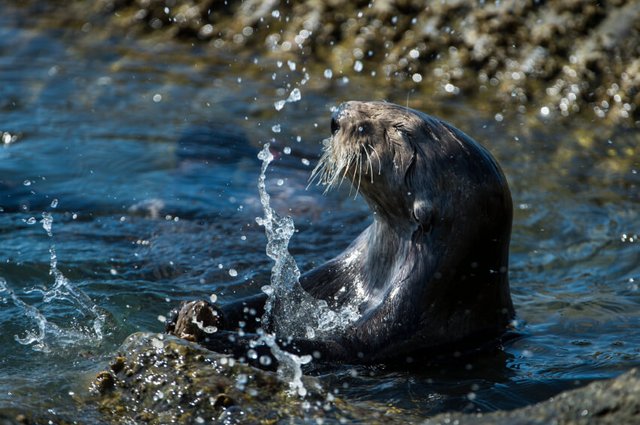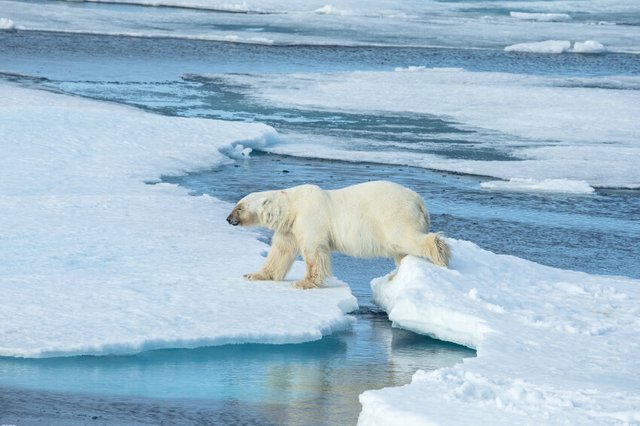Hello friends greetings in the next post I will talk about the importance of the water element in our daily lives, the guide considered the most important element for the life of human beings, today in this publication will be defined definition of basic concepts that are related to this elements, I invite you to observe this interesting publication and remember friend "WITHOUT THE WATER THERE IS NO LIFE" !!

Water is one of the natural elements that is found in greater quantity in Mother Earth and is one of those elements that more directly have to do with the possibility of the development of different forms of life.
In the same way that happens with oxygen, water is essential so that both plants and animals, humans and all known forms of life can exist, the organisms of all living beings are composed in a high proportion by water , being that this is the one that composes the muscles, organs and the different tissues.
Water is a liquid element found in many parts of Mother Earth in different forms (salty, sweet, liquid, solid, etc.). For the human being, water is important to be consumed in a drinkable way and so that the organism can continue to function correctly.
Water is responsible for all tissues to develop their functions and capacities effectively. When a person suffers a state of dehydration or lack of water, these tissues begin to lose their capabilities and functions are minimized to the maximum. But water is not only important for human consumption, but it also has to do with allowing the existence of a complex number of living beings.
First, water is one of the most important foods of vegetables, so the water that comes through irrigation or rain is responsible for the growth of all types of plants and vegetation that exists in the planet.
The importance of water in life
Can be understood if we refer to the functions performed by organisms to stay alive. In the functions that allow organisms to manage energy to synthesize and degrade compounds, water plays a decisive role. Likewise, organic compounds, energy source, are transported through water.
Photosynthesis could not take place in photosynthetic vegetables, without the presence of the water molecule. The light phase requires the breakdown of the water molecule (photolysis) to provide the electrons needed for the process. All organisms depend on the functions performed by plants (autotrophs) so that without water, this important link in the life chain, life as we know it would not be possible. Thus, water is at the same time an input and a vehicle. The circulation of both nutrients and waste uses water in organisms as a basic component of vital fluids.
Waste products from organisms also use water as a vehicle. We could say that any metabolic activity is intimately linked to the water molecule. On the other hand, the organisms establish intimate and transcendental relations with the environment. Water, thanks to its heat capacity, plays a very important role in the thermal regulation of the climate, making the variations less abrupt, than they would be if there were no water. In the body, water also has this important function: to regulate the temperature. The release of water vapor as sweat or panting are vital for the preservation of body temperature.
Organisms have structures that allow them to "capture" information about the environment that surrounds them. Sensory organs could not pick up olfactory and gustatory signals if the molecules they perceive were not transported by water. The reproductive functions and their transport are also closely linked to water.
According to the United States Geological Survey (USGS for its acronym in English), the surface of our planet is made up of three quarters of water, or 71%. Of this percentage, 96% are oceans and seas, while the rest called "fresh water", because it does not have salt concentrations, exists in the environment as water vapor, in rivers, lakes, at the poles, glaciers, in the humidity of the ground and in the aquiferous mantles, and even in the living beings.
The role in the development of life
As we observed, water is a liquid element found in many parts of the planet Earth in different forms (salty, sweet, etc.). In the particular case of the human being, water is important to be consumed (in which case it must be made drinkable) and so that the organism can continue to function correctly. In this sense, we can say that water is responsible for all tissues to develop their functions and capacities effectively. When a person suffers a state of dehydration or lack of water, these tissues begin to lose their capabilities and functions are minimized to the maximum.
But water is not only important for human consumption but also has to do with allowing the existence of a complex number of living beings. First, water is one of the most important foods of vegetables, so the water that comes through irrigation or rain is responsible for the growth of all types of plants and vegetation that exists in the planet. On the other hand, water is consumed by animals and then also serves as a natural element of vital importance for the development of them.

An essential element, and protagonist of the origin of life
Although certain organisms need to consume it more than others, we all need water to survive and in fact, it is known that without it, life on Earth would never have begun. Being a medium in which organic compounds can be mixed together, water facilitated the generation of the planet's first life forms, possibly protecting them from solar radiation.
From these first organisms, to the most complex plants and animals, water has played a fundamental role in the beginning of life. In humans, it acts both as a solvent and as a mechanism that transports vitamins and essential nutrients from food to cells. In addition, our bodies also use this resource to eliminate toxins, regulate temperature and help metabolism.
In addition to being essential for the proper functioning of the human body, water promotes life in many other ways. Without it we could not grow, raise animals, wash food and maintain good hygiene. Water has also been key in the evolution of civilization since it has served as a means to travel and a source of energy for factories. Since water can also exist as steam, it can be stored in the atmosphere and returned as rain anywhere on the planet. To make matters worse, the oceans help regulate the climate, absorbing the heat in the summer and releasing it during the winter. These same oceans also serve as a home for countless plants and animals.
Take care of this resource that belongs to all
The protection of the aquifer reserves available on the planet is then an action that all countries, governments and communities must strive to ensure that these natural water courses allow the subsistence not only of the human being but of any known way of life .
Water can transform our daily life.
Nutrition experts recommend taking between 6 and 8 glasses of simple water a day, you know why? These are four good reasons:
1 . It helps protect the heart, preventing heart attacks.
2 . It gives the brain a boost, because it provides a large part of the oxygen needed to achieve optimal levels of performance.
3 . It contributes to the maintenance or loss of weight: Drinking water increases the metabolic rate, helping the body to burn fat.
4 . Keeps you alert: Dehydration is one of the main causes of fatigue. Drinking water helps you stay awake and active throughout the day.

The amanece of global warming and the responsibility of the human being
Due to global warming, in many parts of the world today the demands of this vital liquid can not be met. Experts from the Department of Economic and Social Affairs of the UN say that about 1.2 billion people do not have access to drinking water and are forced to travel long distances to find it and cover their most basic needs.
Water is so significant in our life, that it has been declared a fundamental right for human beings. It is our duty to use it appropriately and take care of it, to avoid that this non-renewable resource continues to run out.

References
- https://en.wikipedia.org/wiki/Water
- https://www.theguardian.com/global/2015/may/11/water-weirdest-liquid-planet-scientists-h2o-ice-firefighters
- https://www.smithsonianmag.com/science-nature/how-did-water-come-to-earth-72037248/
- Gleick, P.H., ed. (1993). Water in Crisis: A Guide to the World's Freshwater Resources. Oxford University Press. p. 13, Table 2.1 "Water reserves on the earth". Archived from the original on 8 April 2013.
- Water Vapor in the Climate System, Special Report, [AGU], December 1995 (linked 4/2007). Vital Water UNEP. Archived 8 July 2009 at the Wayback Machine.
- Crocket, Christopher (5 September 2015). "Quest to trace origin of Earth's water is 'a complete mess'". Science News. Retrieved 1 October 2015.
- "MDG Report 2008" (PDF). Retrieved 25 July 2010.
- Kulshreshtha, S.N (1998). "A Global Outlook for Water Resources to the Year 2025". Water Resources Management.
Hello,
Copying/Pasting full texts without adding anything original is frowned upon by the community.
These are some tips on how to share content and add value:
Repeated copy/paste posts could be considered spam. Spam is discouraged by the community, and may result in action from the cheetah bot.
If you are actually the original author, please do reply to let us know!
Thank You!
More Info: Abuse Guide - 2017.
Downvoting a post can decrease pending rewards and make it less visible. Common reasons:
Submit
You received a 10.0% upvote since you are not yet a member of geopolis.
To read more about us and what we do, click here.
https://steemit.com/geopolis/@geopolis/geopolis-the-community-for-global-sciences-update-3
If you do not want us to upvote and comment on your posts concerning earth and earth sciences, please reply stop to this comment and we will no longer bother you with our love ❤️
Downvoting a post can decrease pending rewards and make it less visible. Common reasons:
Submit